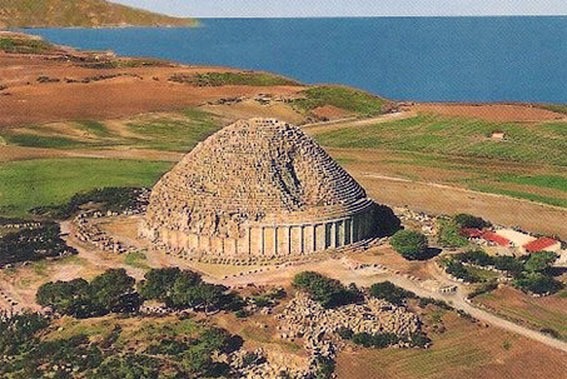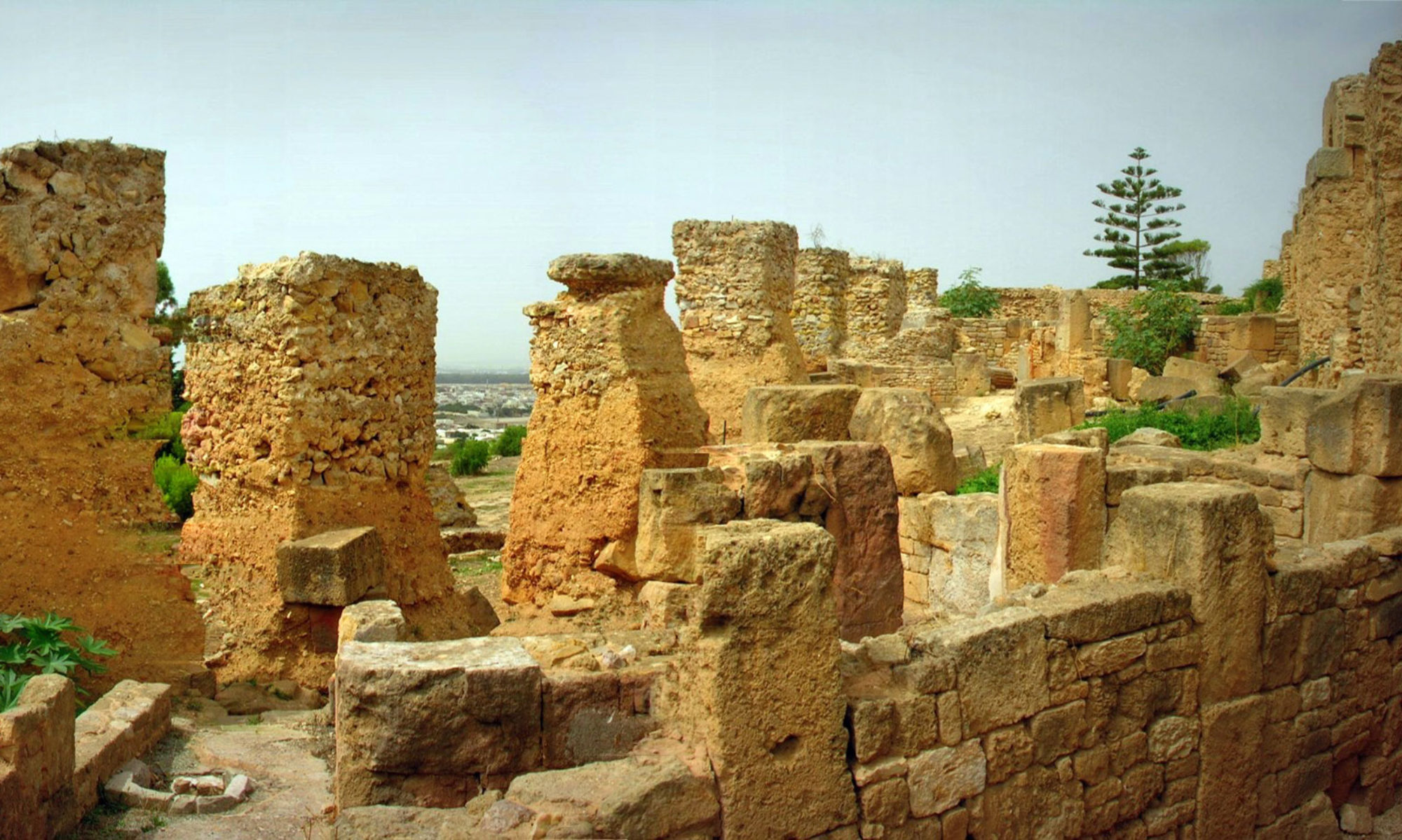
Lived Ancient Religion in North Africa
University Carlos III of Madrid 19-21 February 2020
Organised by
Valentino Gasparini & María Fernández Portaencasa (Universidad Carlos III de Madrid)
Call For Papers (ENGLISH)
The LARNA project (Lived Ancient Religion in North Africa), based at the Institute of Historiography ‘Julio Caro Baroja’ (University Carlos III of Madrid) and funded the Autonomous Community of Madrid, invites researchers of ancient history, history of religion, archaeology, anthropology, classical studies, and further related fields to discuss the topic of “Lived Ancient Religion in North Africa”.
As the title of this International Conference clearly suggests, the theoretical framework of this meeting is inscribed within the paradigm of Lived Ancient Religion (hereafter LAR), developed in Erfurt between 2012 and 2017 and supervised by Jörg Rüpke. LAR supports a methodological shift from the idea that the dominant structure in the Graeco-Roman World was based on the routinised and institutionalised performance of public, collective rites driven by the elite ideology (i.e. the polis– orcivitas-religion) to a focus on the individual as an active actor, capable of situational and creative innovation. Sharing this perspective, this conference will deal with religious agency not as a ‘normalising’ action by representatives of institutional entities or local oligarchies, but as creative innovation by decision-makers who consciously modified established religious patterns. The main sociological reference point for this conference lies in Michel de Certeau’s concepts of bricolagiste appropriation and re-contextualisation, which take into account the processes by which individuals select, construct and vary religious offers, as well as the concepts (and limits) of group membership and of normative and deviant behaviours.
Speakers are invited to examine Roman Africa (corresponding nowadays to Morocco, Algeria, Tunisia and Libya) as the arena of situationally-dependent innovations and adaptations by a number of local small-scale religious actors who freely used religion as a resource to respond to emerging dilemmas, generate religious experiences encompassing the human body and the material environment, and communicate these experiences through multifarious narratives and strategies of emotional saturation. Therefore, we aim to avoid any overemphasis on allegedly shared religious worldviews, divine entities, religious symbols, and myths, but rather to highlight specific authorial micro-strategies in the construction of religious narratives and perspectives, and to specify the relationship between religious experience, group-formation, and textuality in different contexts and periods. Speakers are encouraged
to answer to the following questions: How did religion enlarge and strengthen interpersonal engagement and individual agency in Roman Africa? What stimuli and sense-scapes did generate religious experiences? How did individuals of different social statuses, genders, and ages, with different engagements in religious praxis (practitioners, borderline specialists, devotees), experience a given phenomenon as ‘religious’? How was this experience interpreted and communicated? Why was religion invoked strategically in interpersonal communication? Who were the specialists in charge of mediating and properly addressing this communication thanks to their specific competence and knowledge? What were the media interactively employed in the processes of encoding and decoding the message?
Proposals including a title and an abstract of 300-500 words should be sent to María Fernández Portaencasa (fportaen@hum.uc3m.es) by 30 June 2019. We accept papers in English and French language. All costs of travel (up to 200 euros), food, and accommodation (2 nights) will be covered by the organisation. The proposals will be scrutinized by a Scientific Committee composed by Jaime Alvar (Universidad Carlos III de Madrid), Nicole Belayche (École Pratique des Hautes Études, Paris), Lamia Ben Abid (Université de la Manouba), Nacéra Benseddik (Université d’Alger), Corinne Bonnet (Université de Toulouse Jean Jaurès), Liliane Ennabli (Université Paris IV Sorbonne), Layla Es-Sadra (Université Mohamed V de Rabat), Richard L. Gordon (Universität Erfurt), Attilio Mastino (Università degli Studi di Sassari), Sergio Ribichini (Consiglio Nazionale delle Ricerche, Roma), Jörg Rüpke (Universität Erfurt), Greg Woolf (Institute of Classical Studies, London).
Lived Ancient Religion in North Africa
Université Carlos III de Madrid 19-21 février 2020
Organisé par
Valentino Gasparini et María Fernández Portaencasa (Université Carlos III de Madrid)
Call For Papers (FRANÇAIS)
Le projet LARNA (Lived Ancient Religion in North Africa), basé à l’Institut d’Historiographie « Julio Caro Baroja » (Université Carlos III de Madrid) et financé par la Communauté autonome de Madrid, invite des chercheurs en histoire ancienne, histoire des religions, archéologie, anthropologie, études classiques et autres domaines connexes pour débattre du thème « Lived Ancient Religion in North Africa » (la religion ancienne « vécue » en Afrique du Nord).
Comme le titre de ce Colloque International le suggère clairement, le cadre théorique de cette réunion s’inscrit dans le paradigme de Lived Ancient Religion (ci-après LAR), développé à Erfurt entre 2012 et 2017 et supervisé par Jörg Rüpke. LAR encourage un changement de méthodologie, en passant de l’idée que la structure dominante du monde gréco-romain reposait sur la performance systématique et institutionnalisée de rites publics et collectifs guidés par l’idéologie de l’élite (à savoir la religion de la polis ou civitas) à l’individu en tant qu’acteur actif, capable d’innovations situationnelles et créatives. Partageant une telle perspective, le Colloque ne traitera pas des agents religieux en tant que représentants d’entités institutionnelles ou d’oligarchies locales, mais en tant que porteurs d’innovations créatives et de décisions qui modifient consciemment les modèles religieux établis. Le point de référence sociologique principal de ce Colloque réside dans les concepts d’appropriation bricolagiste et de re-contextualisation de Michel de Certeau, qui prennent en compte les processus par lesquelles les individuels sélectionnent, construisent et modifient les offres religieuses, ainsi que les concepts (et limites) d’appartenance à des groupe et de comportements normatifs et déviants.
Les orateurs sont invités à examiner l’Afrique romaine (qui correspond aujourd’hui au Maroc, à l’Algérie, à la Tunisie et à la Libye) en tant qu’espace d’innovations et d’adaptations dépendant de la situation liées à un certain nombre d’acteurs religieux locaux qui ont librement utilisé la religion comme ressource pour répondre aux situations nouvelles, générer des expériences religieuses englobant le corps humain et l’environnement, et communiquer ces expériences à travers des récits et des stratégies multiples de saturation émotionnelle.
C’est pourquoi nous souhaitons éviter de mettre trop l’accent sur des conceptions religieuses du monde prétendument partagées, sur les entités divines, sur les symboles religieux et les mythes. Par conséquent, nous visons à éviter toute insistance excessive sur des conceptions religieuses du monde prétendument partagés, des entités divines, des symboles religieux et des mythes, et à mettre plutôt en évidence les micro-stratégies spécifiques des auteurs dans la construction de récits et de perspectives religieuses, et à donner corps à la relation entre expérience religieuse, formation de groupe et textualité dans différents contextes et périodes. Les intervenants sont encouragés à répondre aux questions suivantes : Comment la religion a-t-elle élargi et renforcé l’engagement interpersonnel et l’agentivité individuelle en Afrique romaine ? Quels stimuli et quels paysages sensoriels ont généré des expériences religieuses ? Comment des individus de statuts sociaux, de sexes et d’âges différents, engagés différemment dans la praxis religieuse (praticiens, spécialistes borderline, adeptes), perçoivent-ils un phénomène donné comme étant « religieux » ? Comment cette expérience a-t-elle été interprétée et communiquée? Pourquoi la religion a-t-elle été invoquée de manière stratégique dans la communication interpersonnelle ? Qui étaient les spécialistes en charge de cette compétence et de cette connaissance spécifique ? Quels sont les médias employés de manière interactive dans les processus de codage et de décodage du message ?
Les propositions comprenant un titre et un résumé de 300 à 500 mots doivent être envoyées à María Fernández Portaencasa (fportaen@hum.uc3m.es) avant le 30 june 2019. Nous acceptons des communications en anglais et en français. Tous les frais de voyage (jusqu’à 200 euros), de restauration et d’hébergement (2 nuits) seront pris en charge par l’organisation. Les propositions seront examinées par un comité scientifique composé de Jaime Alvar (Universidad Carlos III de Madrid), Nicole Belayche (École Pratique des Hautes Études, Paris), Lamia Ben Abid (Université de la Manouba), Nacéra Benseddik (Université d’Alger), Corinne Bonnet (Université de Toulouse Jean Jaurès), Liliane Ennabli (Université Paris IV Sorbonne), Layla Es-Sadra (Université Mohamed V de Rabat), Richard L. Gordon (Universität Erfurt), Attilio Mastino (Università degli Studi di Sassari), Sergio Ribichini (Consiglio Nazionale delle Ricerche, Roma), Jörg Rüpke (Universität Erfurt), Greg Woolf (Institute of Classical Studies, London).
